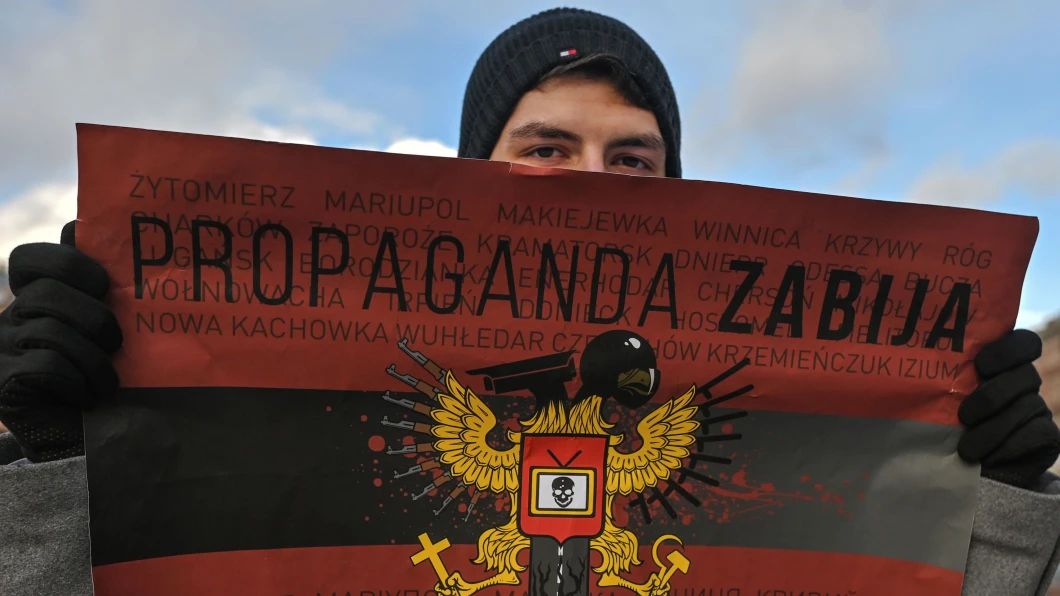Date: 24 July 2023 Author: Katja-Elisabeth Herrmann
Disarming Disinformation in Central and Eastern Europe
Disinformation in Central and Eastern Europe (CEE) remains an enduring and concerning phenomenon, sparking discussions within academia and the political arena.

This escalating issue has emerged as a significant threat to society, with the Visegrad Region (V4) being notably vulnerable, partly due to historical factors.[1] A noticeable increase in polarization has compounded the problem, fostering tribal narratives in CEE and exacerbating the spread of disinformation.[2]
Despite efforts to debunk and fact-check, disinformation’s adaptability to regional contexts presents challenges in effectively addressing and countering it. A growing market for “disinformation trolls” operating across various jurisdictions poses a persistent challenge to fact-checkers, who struggle to maintain credibility against the public’s potential distrust of the truth. Consequently, a pertinent question arises: How can fact-check organizations and debunkers successfully engage the general public to raise awareness about disinformation and promote critical thinking?
Traditional approaches to combat disinformation have proven insufficient as the landscape of information dissemination has evolved, largely due to the rise of artificial intelligence (AI). AI has become both a valuable tool in the fight against disinformation and a preferred weapon for those responsible for generating and disseminating false narratives.
To detect fake news in real-time, software, real-time analytics, and AI-driven Machine Learning (AIML) have been utilized. However, these tools merely address the symptoms of disinformation without tackling its root causes. While AIML enables swift tracking of disinformation across the internet, identifying the sources behind the problem often remains a manual task for individuals. Thus, the essence of the problem lies in real-life factors, not solely in the digital realm.
Disinformation campaigns abound in media and the internet, with recent instances targeting events like the Russian invasion of Ukraine, the U.S. presidential elections, the Trump trials, and the 2023 NATO Summit in Vilnius, among others. Such headlines and narratives have been weaponized by agents seeking to sow disinformation.
In addressing disinformation, it is vital to consider not only potential tools but also appropriate strategies. For instance, the European Union has pushed online platforms to combat false information by using AI-generated labels for content.[3] Moreover, private initiatives like the app TruePic aim to establish an “authenticity infrastructure for the internet” by extracting metadata from pictures. The Digital Diplomacy Task Force founder, Zviad Adzinbaia, emphasizes the need for strategies addressing the root of disinformation rather than being confined to counter-narratives.[4]
An effective communication strategy should aim to guide the public towards accurate facts, avoiding engaging in a “fire with fire” approach. For instance, amidst the Russian invasion of Ukraine, Microsoft’s media literacy program empowers internet users to counter online misinformation. The Baltic states face a new wave of disinformation campaigns, with Latvia, Estonia, and Lithuania, where Russian-speaking communities represent between 4 and 25 percent of the population[5], experiencing Russian-originated disinformation, employing AI-related tools. Lithuania’s efforts to criminalize automated account activity underscore the need for modern alternatives and stronger political will in disarming disinformation.[6] It is no surprise that disinformation often transcends national borders, making international collaboration crucial in tackling this global challenge.
Georgia’s case is particularly noteworthy, with the country enduring disinformation for decades, shaping public narratives regarding NATO and the European Union. In this context, Georgia can be said to have become the first country in history to steadily be under hybrid warfare fighting in the cognitive battlefield. Thus, understanding the objectives of disinformation campaigns is crucial in developing effective responses. Institutions and agencies such as STRATCOMS across Europe and its neighbors increasingly witness an emerging ‘market for disinformation’ where often people or profiles are for hire. This has led to an increase in the actors involved in the web of disinformation.
To effectively combat disinformation, bolstering media literacy and promoting critical thinking among the public is paramount. Educating citizens on how to discern reliable sources, fact-check information, and recognize common disinformation tactics can empower them to make informed decisions when consuming and sharing content. After all, we are consumers of a new good – information. However, different from the goods that we purchase in a supermarket, information shapes our cognitive biases throughout time. Thus, an approach to public awareness in the early stages of livelihood is a suitable strategy for promoting healthy choices of what we consume online.
Civil society and government agencies play pivotal roles in combating disinformation. However, civil and political polarization can exacerbate the effects of propaganda and disinformation. As such, these entities must address the root causes while utilizing more advanced digital tools to form an effective toolbox against disinformation. By adopting comprehensive strategies and fostering a united effort, the battle against disinformation in CEE can see greater success.
[1] Miroslava Pisklová, Juraj Sýkora, “Disinformation and the V4” Slovak Foreign Policy Association (August 2020), page 1.
[2] Peter Kreko. “The drivers of disinformation in Central and Eastern Europe and their utilization during the pandemic” GlobalSec (2020).
[3] Kelvin Chan. “Is it real or made by AI? Europe wants a label for that as it fights disinformation” Associate Press (June 5, 2023).
[4] Zviad Adzinbaia – founder of the Digital Diplomacy Task Force at an online panel event with the Warsaw Institute “Disarming Disinformation in Central and Eastern Europe” (July 13, 2023).
[5] Pisklová Miroslava, Juraj Sýkora, “Disinformation and the V4” Slovak Foreign Policy Association (August 2020).
[6] Amanda Coakley and Ellery Roberts Biddle, “Lithuania goes after bots following spikes in pro-Russian propaganda” Coda Media, Inc. (July 18, 2023).
Sources:
1. Coakley Amanda and Ellery Roberts Biddle, “Lithuania goes after bots following spikes in pro-Russian propaganda” Coda Media, Inc. (July 18, 2023).
https://www.codastory.com/authoritarian-tech/lithuania-russian-propaganda-online/
2. Pisklová Miroslava, Juraj Sýkora, “Disinformation and the V4” Slovak Foreign Policy Association (August 2020).
https://www.sfpa.sk/wp-content/uploads/2021/08/Disinformation-and-the-V4.pdf
3. Pollet Mathieu, “Lithuanian MEP funded disinformation portal: report” Politico (July 3, 2023).https://www.politico.eu/article/investigation-finds-lithuanian-lawmaker-funded-disinformation-portal/
4. Kreko, Peter. “The drivers of disinformation in Central and Eastern European and their utilization during the pandemic” GlobalSec (2020). https://www.globsec.org/sites/default/files/2020-06/Drivers-of-disinformation-in-Central-and-Eastern-Europe.pdf
5. Chan, Kelvin. “Is it real or made by AI? Europe wants a label for that as it fights disinformation” Associate Press (June 5, 2023). https://apnews.com/article/artificial-intelligence-disinformation-europe-58a61973645ee0c36dddd1cbea81a42e
6. Klepper, David. “Microsoft’s media literacy program aims to empower internet users and combat online misinformation” Associate Press (June 13, 2023). https://apnews.com/article/microsoft-misinformation-twitter-facebook-youtube-media-literacy-1e086a5f9fc258ddb7391557b9f73401
The project is co-financed by the Governments of Czechia, Hungary, Poland and Slovakia through Visegrad Grants from International Visegrad Fund. The mission of the fund is to advance ideas for sustainable regional cooperation in Central Europe.

Support Us
If content prepared by Warsaw Institute team is useful for you, please support our actions. Donations from private persons are necessary for the continuation of our mission.
All texts published by the Warsaw Institute Foundation may be disseminated on the condition that their origin is credited. Images may not be used without permission.














